[ by Charles Cameron — the color of green cards, the color of blood ]
.
I was watching Revenge of the Green Dragons, since Scorsese produced, and had very little idea of what I was going to see — the film is an amalgam of Hong Kong action flick and New York City crime thriller, based on a New Yorker aticle about Chinatown gangs in the 1980s and 90s — but the opening titles were run under a brief voice-over account of Ellis Island, and included this shot of some early “green cards” —
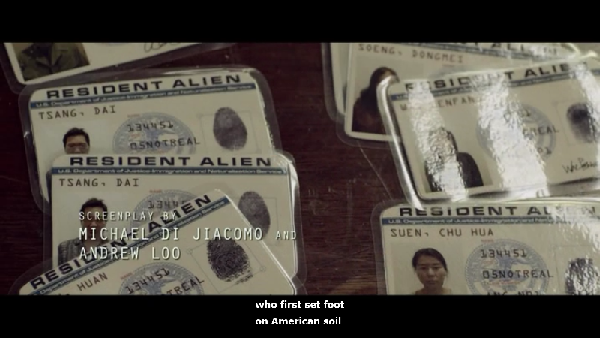
followed by this one of Mahjong tiles, definitively green, and roughly equivalent to cards in western gameplay —
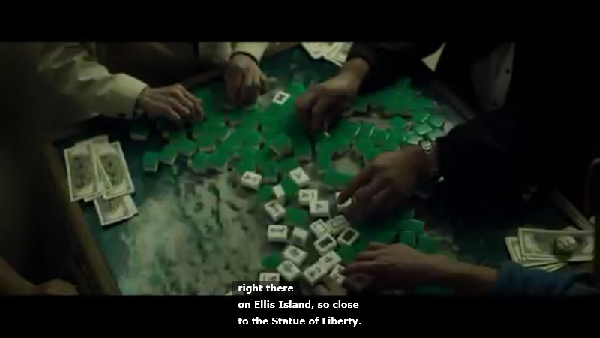
and this, showing the same tiles face-up —
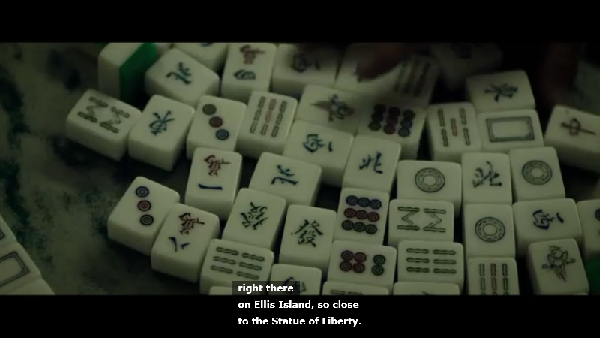
by which point, the greenness, cardness and gameness had my full attention, and at which point I went back and started putting together a series of screencaps, like this one, showing a different but related form of green —
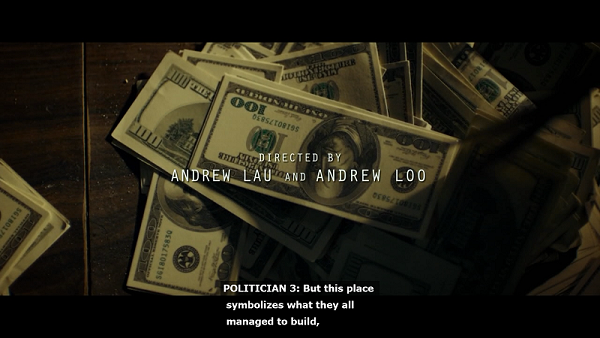
with a switch to red, green’s complementary color, and the violent theme of the movie —
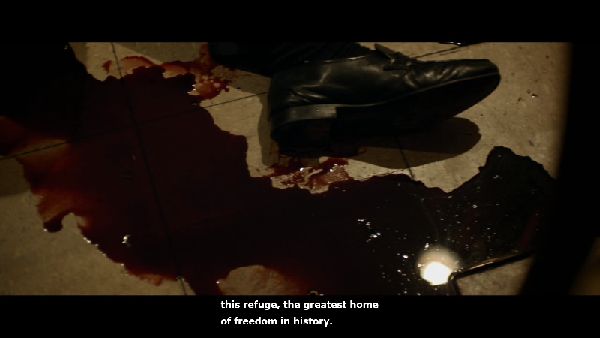
and finally, the film’s title, in red against green.
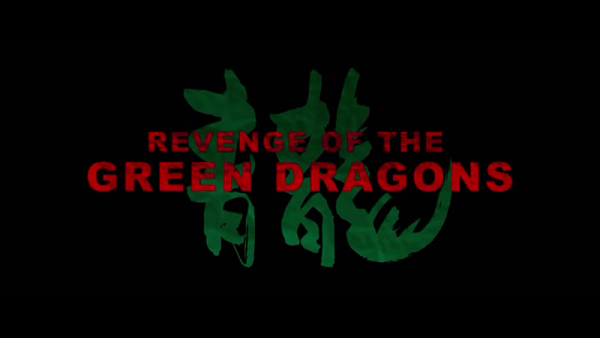
I was beginning to like this film.
**
I thought of calling this post “Entertaining the heart’s eye” because it’s the emotions that respond to this sort of (formal) care in detail — the film maker is fully conscious of such things, but the viewer’s mind’s eye is preoccupied with narrative (content) and barely notices them. That’s skillful means, that’s the artistry of the medium, that’s how we’re subliminally engaged and move, that’s how it’s done.
And if narrative is of any interest, as I suggested recently it should be, in terms of trategy, then “how it’s done” — with an emphasis on form rather than content — is key.
Okay, I had my six screencaps and the tale I’ve just told, and I thought that would be enough, tgether they would make a fine Sunday surprise for ZP. And i thoughy, maybe I can sit back and watch the rest of the film without having to constantly stop and start for screencaps, always a somewhat tedious process.
**
But then, as the film proper got under way, there was this shot of —
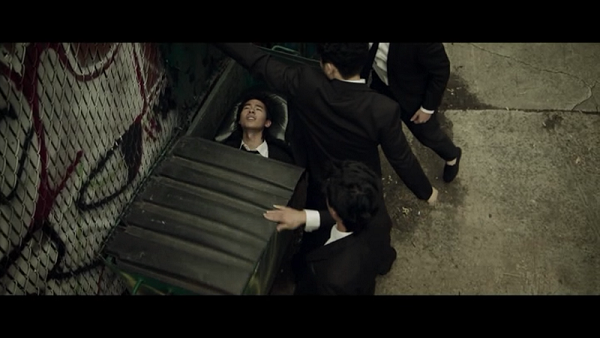
a deceased gangster in the dumpster, for all the world as if it was in one of those viewing coffins used for more warmly appreciated mobsters —
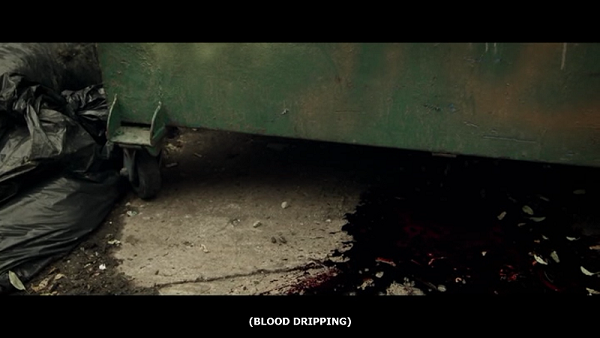
but again featuring the film’s characteristic coloring, green, oozing the dark, dark red of blood.
**
I was enjoying the film a great deal now, and sat back an allowed myself to move through it as, what, “the speed of film”? But I was in for another shock. There’s a narrative within the narrative, you see, a story told by one brother to the other — and as with all such matrioshka “plays within a play” it is the key to the whole. The elder brother explains to his younger sibling the nature of reality, of strength:
When I was six, my father took me far into the forest and left me there. Without food, without water. First two days, I cry and I cry. Then, I started to understand the beauty of forest. How big it was. How small I was.
Soon I come to road, truck take me home. Neither father or mother say anything to me. Not a word.
I loved them even more after that, because they show me how strong I can be.
**
That tale is what the movie is all about, and it is told in forest green.
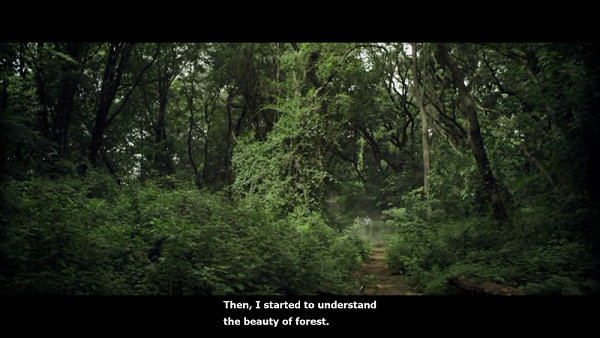
The city is left behind, and in otherworldly green Steven tells Sonny this tale as an act of brotherly love —
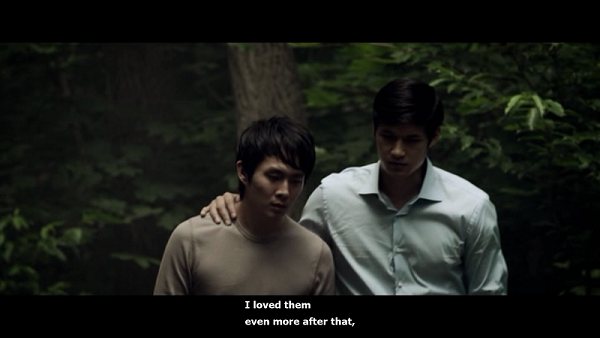
as they are approaching the glade where Sonny’s love, Tina —
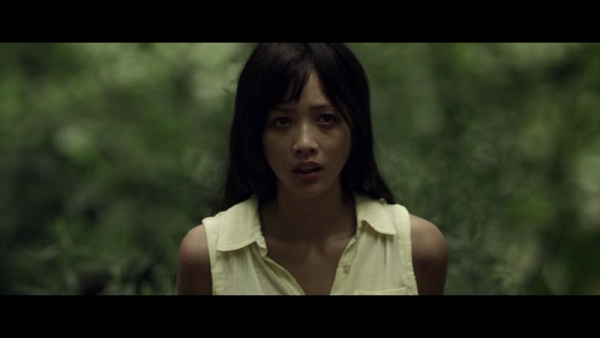
before Sonny’s horrified and furious eyes — and strictly according to gang logic —
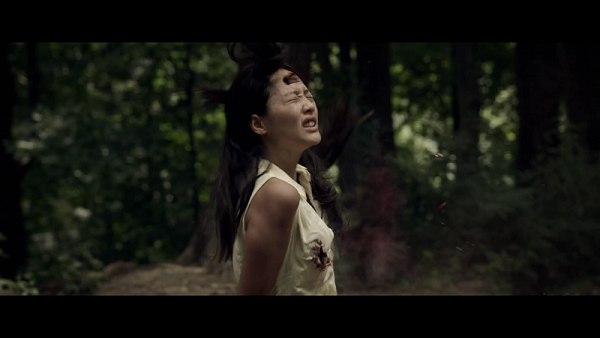
is to be executed, spilling that dark red once again into the green.
**
I have left out the “story” and given you the “geometry” here — see my recent post on the geometry of the Narcissus / Echo myth.
Fredric Dannen wrote the New Yorker article on which the film was based, published in 1992. It doesn’t contain the film’s “story within the story” — but it does mention the “forest” —
They circled around for a while and came across a dirt road. The road ran along the bottom of a ravine and cut through dense woods — an ideal spot for an execution.
And there’s a flash of brilliant red, too — the real-life Tina’s relatives had placed a red handkerchief in one of her pockets before her cremation:
According to Chinese custom, if a murder victim is iven something red to wear, the color will “stick to” the killer and he will be caught.
**
Read the New Yorker piece, see the film, and keep your eyes peeled for the red in the green.















